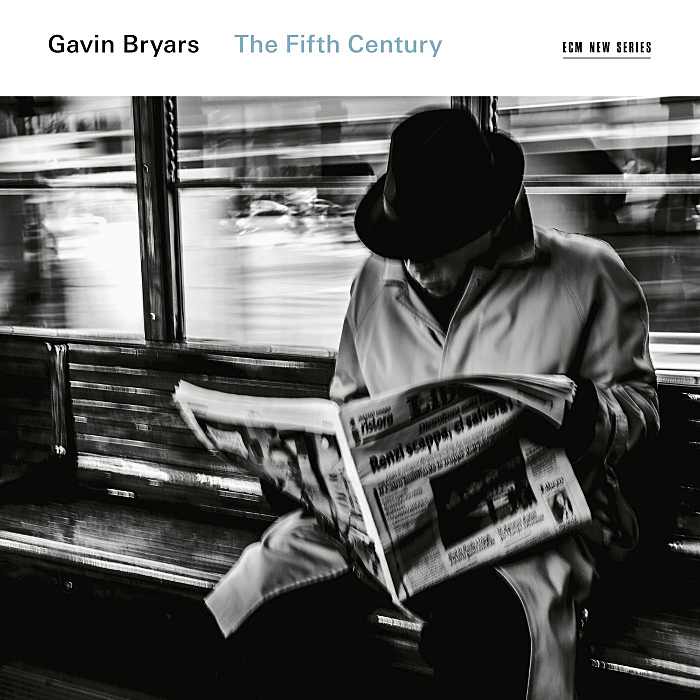Before this 2016 release, the last ECM New Series album dedicated solely to composer Gavin Bryars was the 1994 masterpiece Vita Nova. What both discs lack in temporal proximity, however, they make up for in philosophical overlap.
Thomas Traherne’s Centuries of Meditations, written in the 17th century, yields the 2014 title composition. Scored for choir and saxophone quartet, this setting of a long-unknown English theologian distills what he calls the “essence of God” from glorious creation. The fifth and final century of Traherne’s mystical treatise examines relationships between finite bodies and infinite space, knowledge and ignorance, intimacy and grandeur: dichotomies Bryars has explored in And So Ended Kant’s Traveling In This World (1997) and Glorious Hill (1988), among others. The combination of reeds and voices is as seamless as it is variegated, leaving behind a trail so distinct as to feel antique. That said, the saxophone quartet is subdued in its presence and function, serving as guide rather than commentator, and reaching peak integration in the fifth of seven sections. Performed by the PRISM Quartet and The Crossing, under the direction of Donald Nally, these motifs carry enough weight to exist on their own yet cohere like a sacred text in which is wasted not a single word. While the poetry is rich throughout, the first lines of section III epitomizes the spirit of the piece: “Infinity of space is like a painter’s table, prepared for the ground and field of those colours that are to be laid thereon.” This echoes a theme laid out in the opening of Centuries proper: “An empty book is like an Infant’s Soul, in which anything may be written. It is capable of all things, but containeth nothing.” Bryars evokes this very sense of purity corrupted by flesh in his harmonies, which remind us that dissonance can be beautiful when interpretation is treated as an act of humility rather than pride. And in that humility Bryars, like Traherne, finds joy.
Alongside this cathedral stand the smaller Two Love Songs. These 2010 settings for female choir of sonnets by Petrarch, a personal favorite of the composer, draw a dotted line between the Italian madrigal tradition and the melodic vibrancy of the language itself, which shimmers in the second song, “Solo et pensoso.” Here soloists Kelly Ann Bixby, Karen Blanchard, and Rebecca Siler arise like relics from a receding ocean in a world run dry with passion for want of transfiguration.



